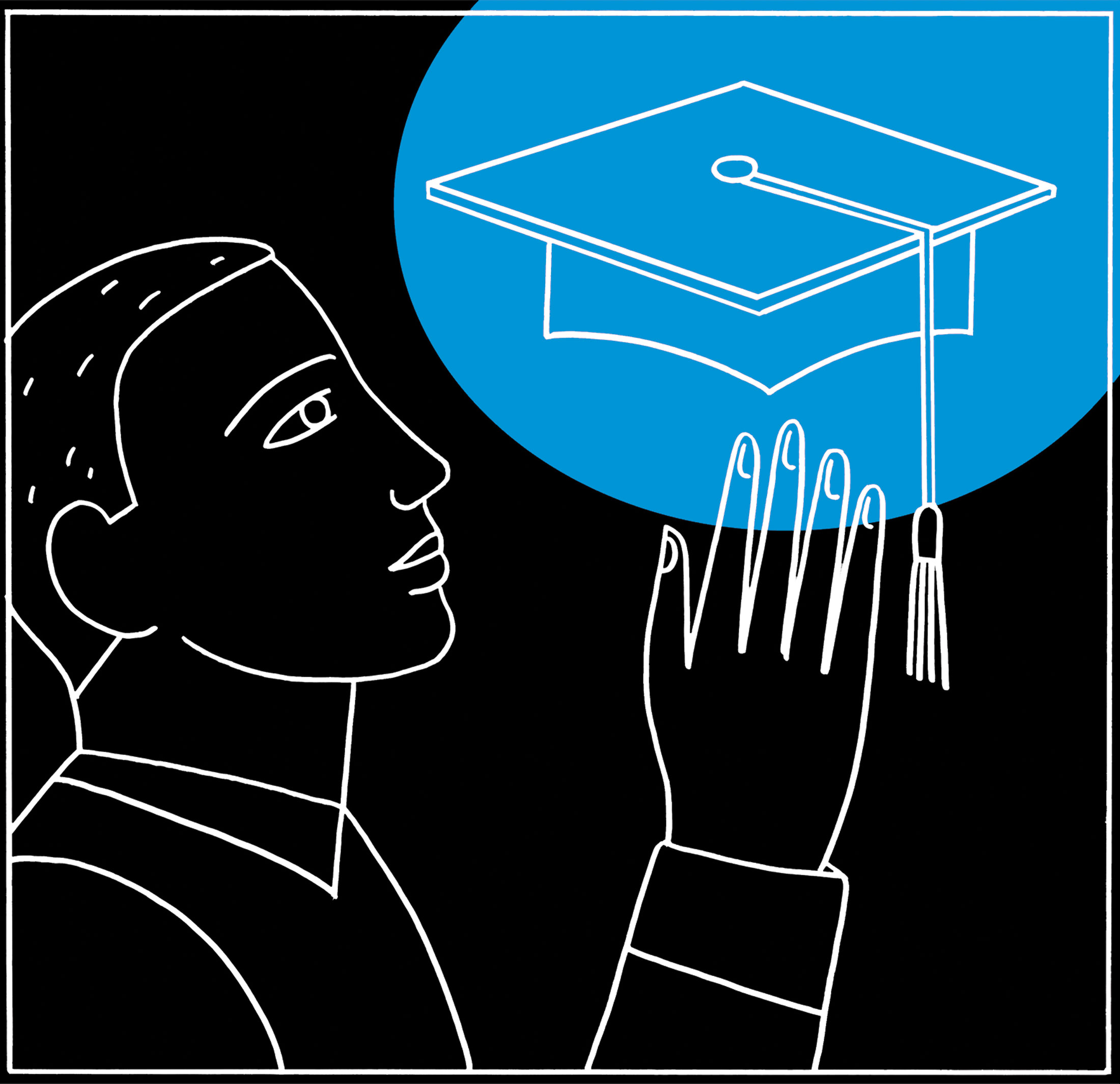Where our voices are heard Where our voices are heard Where our voices are heard
The ASUW president is fighting for representation for students—and for stakeholders to listen.
By Mustapha Samateh | Illustration by Anthony Russo | March 2022

My name is Mustapha Samateh. My pronouns are he/him/his. I am a senior and a transfer student from a community college. I am also an immigrant from Gambia and a first-generation college student. The higher education I am now privileged to pursue has given me different perspectives on how to live and embrace my identity.
Where I come from in West Africa, basic and higher education is not accessible to all. As a teenager I was a volunteer with the United Nations Children’s Fund and advocated for the rights of children and young people. The experience sparked my passion for advocacy and social justice; specifically, I’m interested in elevating student voices around the issues of educational attainment and equity.
My time as a student leader at UW and in higher education has allowed me to discover and develop a dedication for serving students in my community. I started on that path as student body president at Edmonds Community College and student legislative intern for the Washington State Board for Community and Technical Colleges. Now I am president of the Associated Students of the University of Washington.
I have heard numerous stories from my fellow students, and they have helped me better serve and represent their best interests and bring their voices to the platforms—including the Board of Regents and the faculty senate—I now have. The only thing that separates students with marginalized identities from anyone else is the opportunity for participation and representation. We want to be part of a community where we feel our voices are listened to and acted on.
Decisions on higher education issues affect our everyday lives and they are key factors that determine our success and retention rates in college. These past two years we have witnessed and experienced a global pandemic. It has been marked by countless challenges for our students to overcome whether they were academic, artistic or personal. In spite of the challenges, we persevered because UW thought us to be boundless. We pushed through COVID-19. We pushed through racial injustice. And we are still pushing through to change the norms and challenge the system to set a new normal that best reflects us as a community.
The world of higher education has changed, and it is still changing. We as students ask the stakeholders in our education system to be open and be flexible to the new ways of living and learning that will shape our experiences to allow us to be the best versions of ourselves